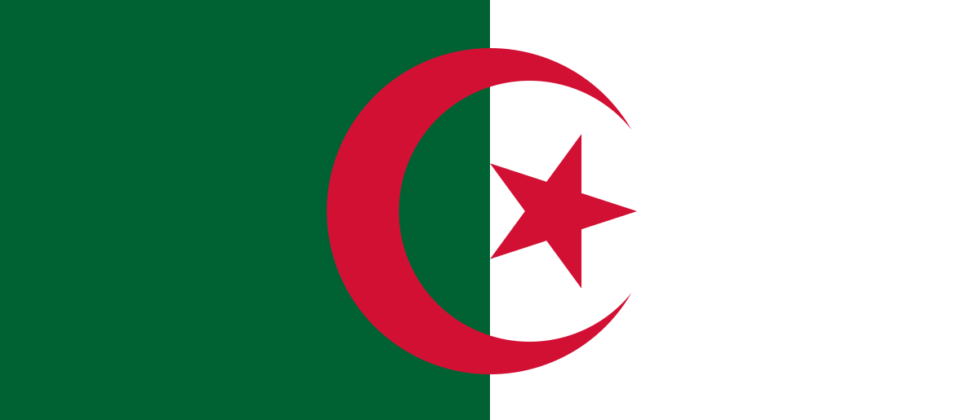news
“In Algeria, the Case of Bouteflike”, an article by Dr. Leonel Fernández
March 19, 2019
At 82 years of age, he gets around fragilely in a wheelchair. In the last seven years he has not given a speech to the country. He has not made a single public appearance and his “presence” in official activities is made through photos. He has respiratory problems; a look of confusion and his voice is drowned out in an incomprehensible whisper.
The individual is none other than Abdelaziz Bouteflika, the 20-year president of the Republic of Algeria, the largest country in Africa by geographic terms.
On February 10 through a letter addressed to electoral authorities in the typical style of the government, Bouteflika presented documents to formally announce his 5th presidential candidacy prior to the elections to be held on April 18, 2019.
In the letter President Bouteflika said: “Of course, my physical strength is no longer the same as it was in the past. This is something that I have never hidden from the people, but, my intense desire to serve the country has never faded.”
He added, surprisingly, that if reelected, he would step down shortly after.
Those promises, however, were not believed to be true. The Algerian people had already heard such promises before. In 2008, Bouteflika, after his second term, changed the Algerian constitution to allow for indefinite reelection.
In 2011 during the peak of the Arab Spring, which toppled many regimes in the region, the Algerian president committed to a new constitutional reform that proposed a return to the past, when the number of terms was limited to two. That commitment, however, did not take effect until 2016 when Bouteflika started his fourth government.
Different from past experiences, the decision by Abdelaziz Bouteflika to run for office for a fifth consecutive time provoked protests that filled the streets of Algeria and shook the regime.
The rise of BOUTEFLIKA
Bouteflika came to power following the bloody Algerian Civil War that begin in 1991 when the government of the National Liberation Front (FLN) scrapped the results of elections that were won by the Islamic Salvation Front.
There were numerous deaths as a result of the civil war. It’s calculated that more 200 thousand people died. It was a bloody event that left deep wounds and polarized Algerian society.
The electoral defeat of 1991 was the only time that the political hegemony of the FLN, the organization that led the fight for independence against the French colonial power following the Second World War, appeared unsettled.
In the middle of the conflicts and convulsions that rocked Algerian society in that era, Abdelaziz Bouteflika, the youngest of the historic leaders that fought for independence in the North African country alongside Ahmed Ben Bella and Hoari Boumediene, came to power in the elections of 1999 after 20 years in exile.
Bouteflika’s victory was impressive. He received more than 74 percent of the vote, something very rare in the electoral history of the country.
During his first term, Algeria signed peace agreements and granted amnesty to people that participated in the civil war. Bouteflika also strengthened the notion of Algeria as an Arabic-speaking, Islamic country with a progressive government.
In 2004 Bouteflika achieved another solid victory. He received 85 percent of the vote, although there were irregularities in the electoral process.
It was an era when the price of fuel began to increase, which contributed to the economic growth of Algeria; it also was a time of political consolidation by the FLN leader.
Although the circumstances were in favor of Bouteflika, a third term was not possible. In 2008 however, Bouteflika, supported by a majority in the parliament, put forth a reform to the constitution that eliminated the prohibition of his reelection.
Rise and fall
In 2009 Bouteflika won once again. This time astronomically so, with 90.2 percent of the vote. However, there was an historic level of abstention at 75 percent, which reflected the discontent of the population with what had already turned into an attempt to eternalize power.
In 2005 Bouteflika was sent to a hospital in France to be operated on for a bleeding ulcer. Eight years later, in 2013, he suffered a stroke; and in 2016 he had an invasive colon exam.
Due to the stroke, his neurological functions deteriorated. This limited his ability to prevent the ingestion of food or liquid into his lungs. Bouteflika also has aphasia, which implies partial loss of speech. One can barely understand him: you have to practically read his lips.
Facing the evident deterioration of Bouteflika’s health, people in various sectors of Algerian society question his capacity to continue governing. Rumors circulate that behind his fragile figure are others who really make the decisions about the country’s direction.
The announcement by Bouteflika that he would run for his 5th consecutive term provoked alarm and outrage from different sectors in the country, mostly because it coincided with a new stint in the hospital in Geneva, Switzerland.
The protests shared through social media multiplied. Every week waves of people congregated, taking control of the streets. The traditional power structure appeared shaken.
In the end, as a result of the people’s power expressed through formidable protests against the reelection of Bouteflika; the impact of public opinion; pressure from civil society and the exemplar action by youth, the elderly president, considered by doctors to be in “life-threatening” condition, had to send a card addressed to the country from his hospital bed which reversed his initial aspirations to continue governing.
It was a great defeat for the political leader that had accomplished indisputable feats in his country’s historic efforts to achieve independence, peace and prosperity.
But it was, at the same time, a great victory for the Algerian people, who, through their intense determination and unwavering decision to fight, demonstrated an invincible character when facing the obstinate senselessness of their leaders.






